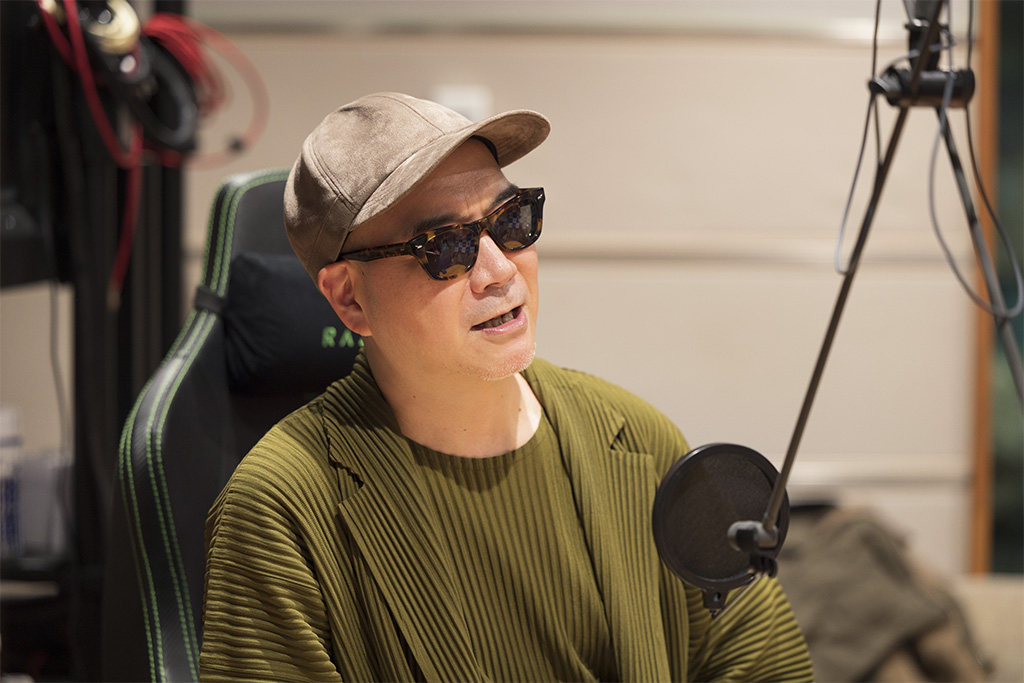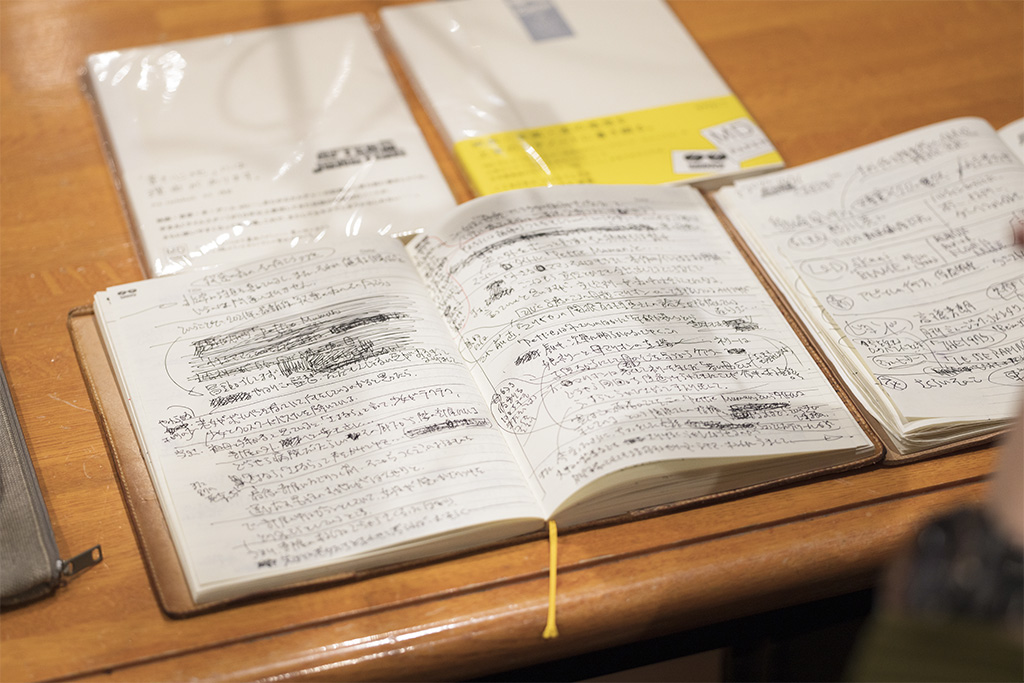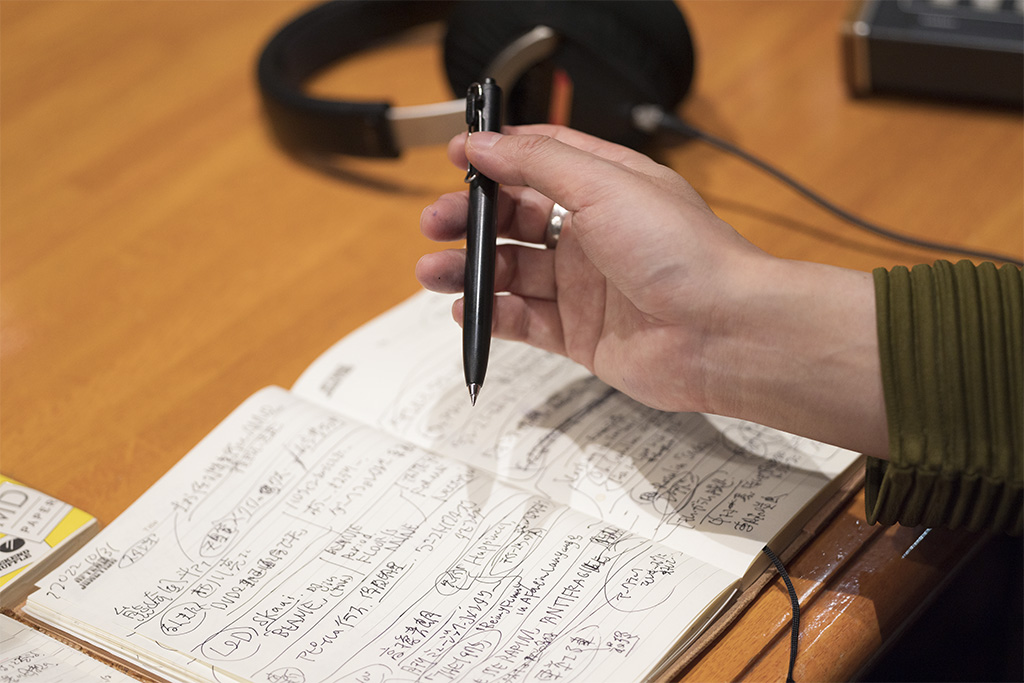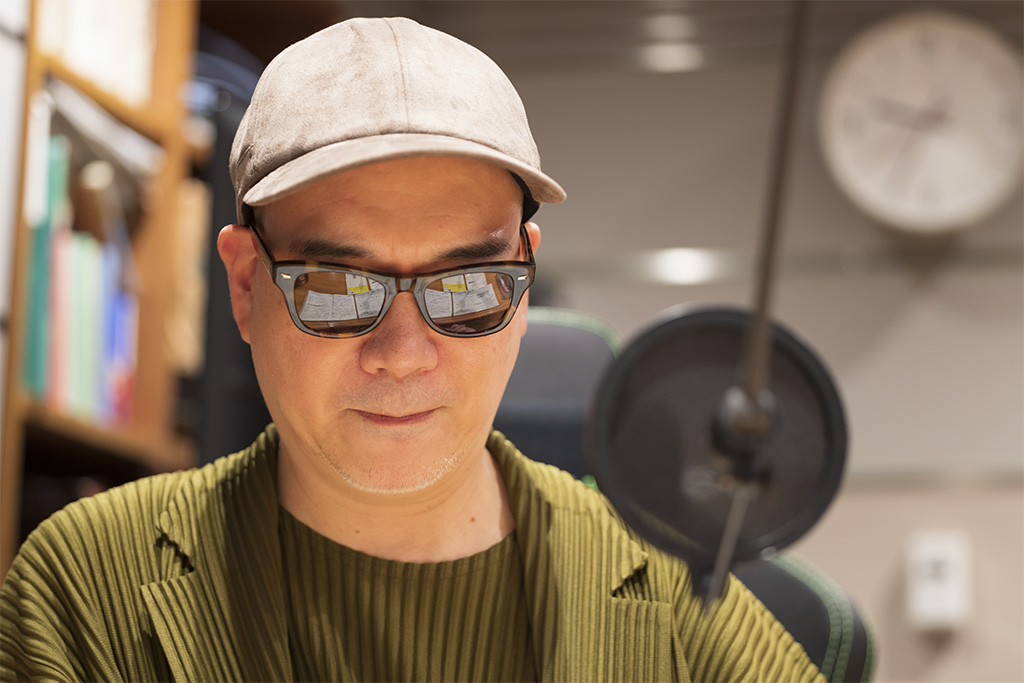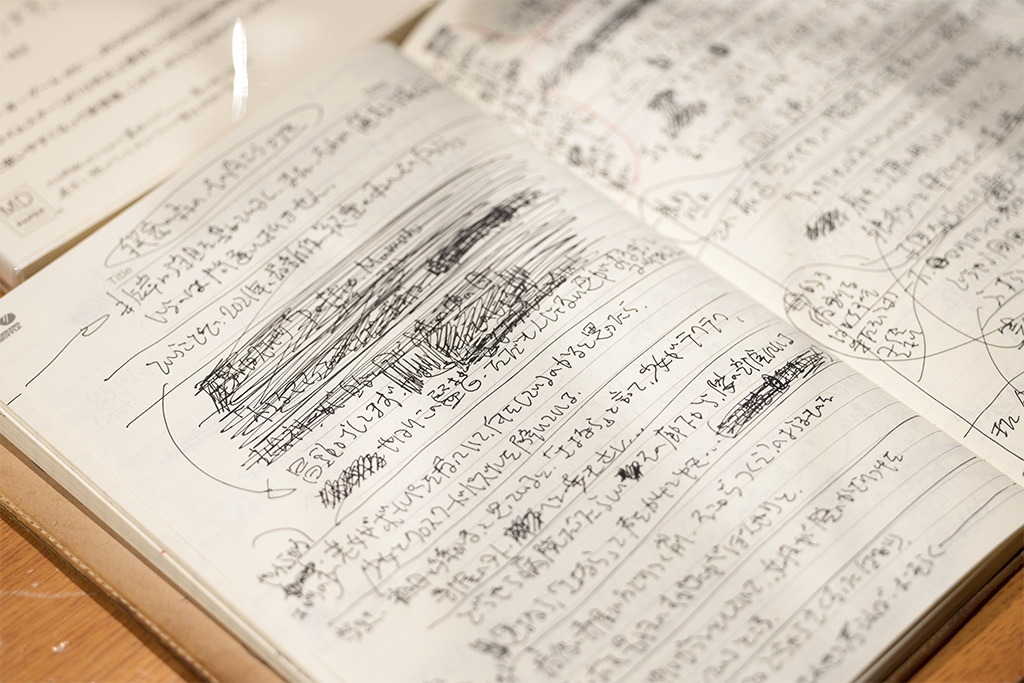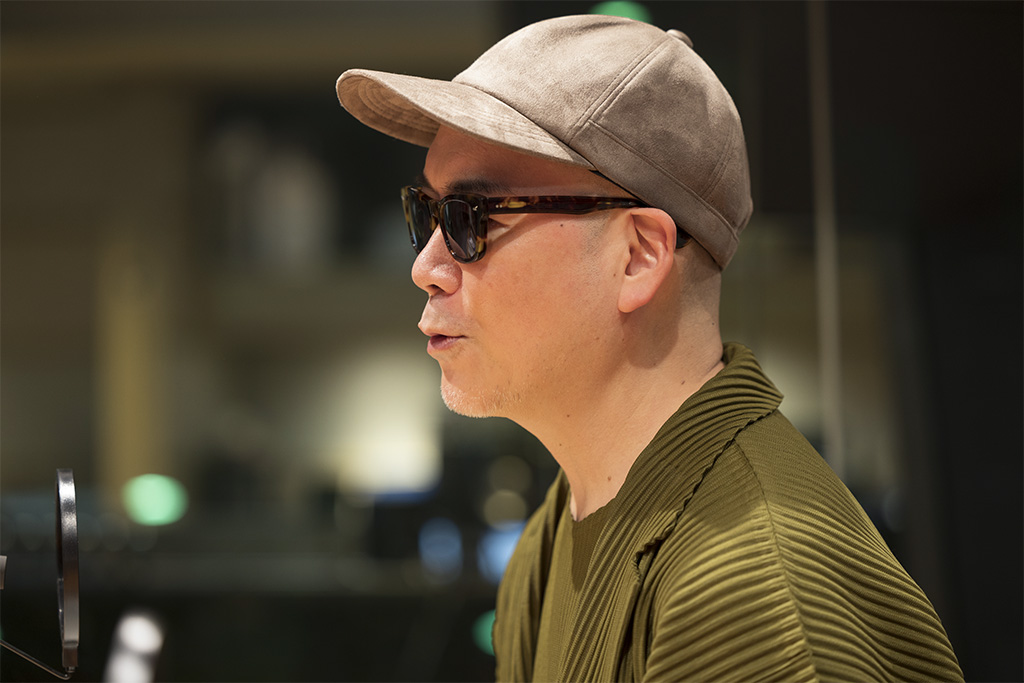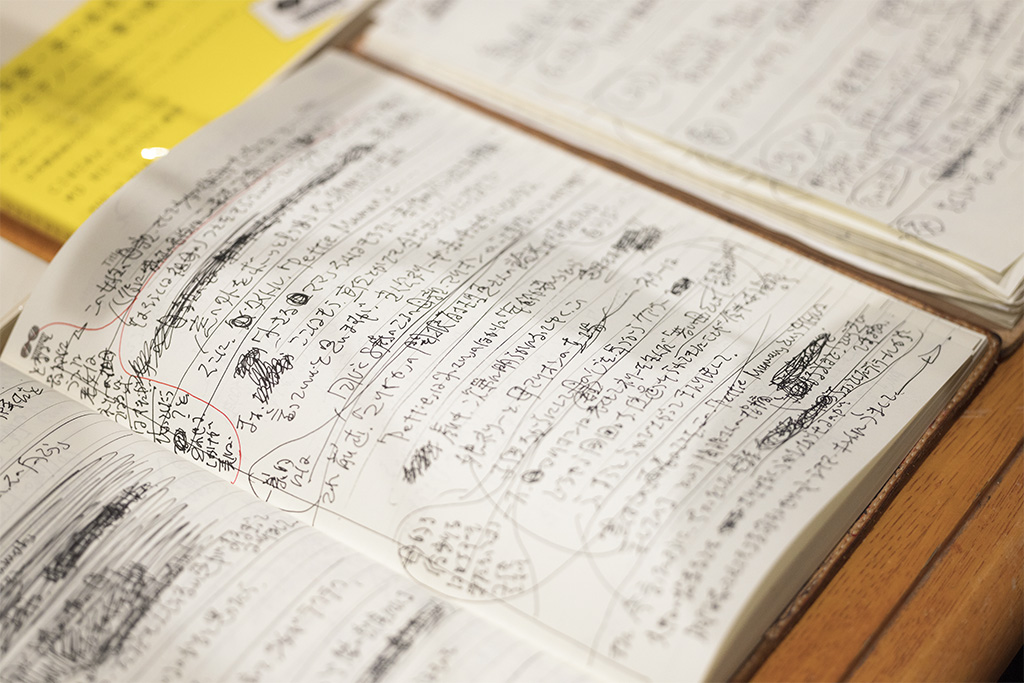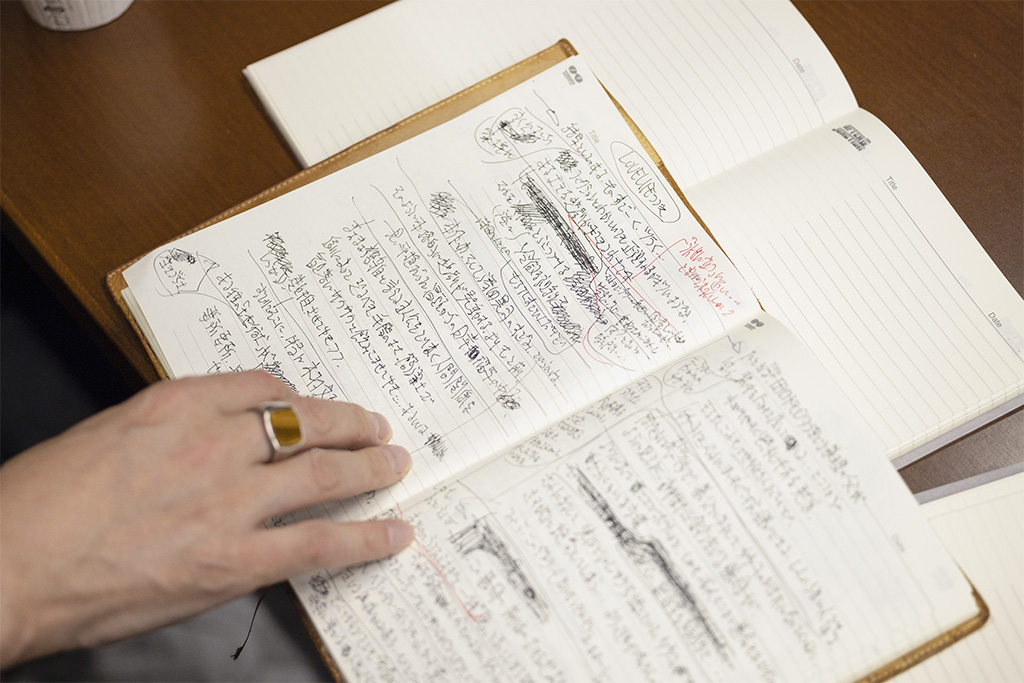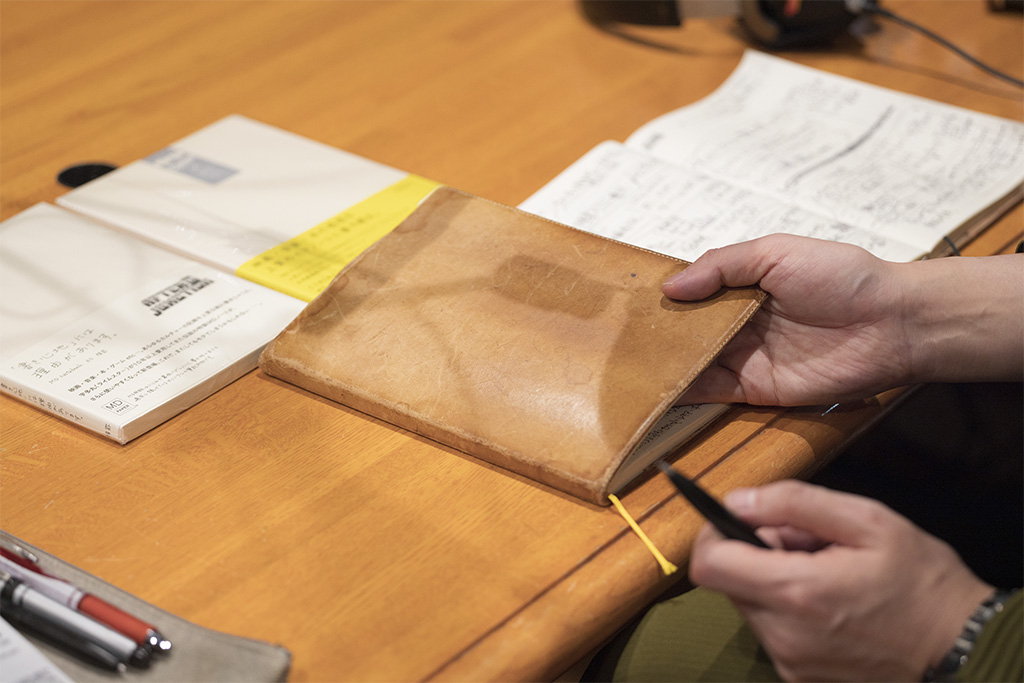Utamaru (RHYMESTER)
Rapper / Radio Personality
Utamaru’s work covers a wide range of cultural realms, from rapping as part of the hip-hop group RHYMESTER, to hosting the radio show After 6 Junction and writing as a columnist. An MD Notebook user for over 10 years, we asked him about his first encounter with these notebooks and what he loves about them.
――Tell us more about the first time you discovered MD Notebooks.
I came across MD Notebooks when I started doing film criticism on the radio. At first, I bought any old small notebook and used whatever ballpoint pen I had lying around to write down what I wanted to say. I used to think that all notebooks and pens were the same, that seems unbelievable to me now (laughs).
However, I began wanting to be more precise in my critiques, which meant taking more notes, and I started looking for ways to take the stress out of writing.
Kou Furukawa, a show writer, a stationery fanatic and an MD Notebook user, said, “This is a good one” and gave me an A5 MD Notebook and a leather cover. I was surprised the first time I used it, I almost felt bad writing on such nice paper.
After that, I had the chance to visit the Designphil booth at the International Stationery & Office Products Fair (ISOT) trade show as part of a special feature for our program. We ended up making an original notebook just for the show. It’s called the Cinema Hustler Notebook, and it was created with the conviction that, even if they don’t sell, I’ll just buy them all and spend the rest of my life using them!
――Are there any elements you were particular about when creating your original notebook?
I asked that the pages be unified with a blank space on the left-hand side. That’s because my style is to write the main thesis in the body and add things that I forgot to mention in the blank spaces.
It was also important to me that there were no ruled lines in the blank spaces. I sometimes write quite small, and I like having the freedom to do that. The weird thing is that, even though a surprising number of notebooks have blank spaces on the outsides of the pages, you never see notebooks with the blank spaces on the left-hand side of every page. The notebook is now in its completed form, and it’s already an indispensable part of my work.
――What do you write in your MD Notebooks nowadays?
I always have two notebooks with me, one for my everyday show notes and one with “scripts” for my weekly film reviews. The three hours or so before the show is my writing time. I’m always writing right up until the last minute, so making it stress-free is important.
I’m a fan of gel ink pens, and having a certain degree of lusciousness and a clear black color is a top priority. MD Notebooks are a great match for pens like that. I love the way the pen glides across the page without any feathering, or even rubbing.
Even as scripts and lyrics move to all-digital, I write everything to do with the radio show by hand.
――Why do you insist on writing by hand? What do you like about it?
My movie reviews for the radio show are based on a continuous stream of spoken words. As a result, rather than simply organizing the information, the script has to fit this continuous “physiology” of speech. That’s one big reason. It’s also why I do my writing all at once, right before we go on air. Also, radio as a medium generally dissipates after it is broadcast, so I think there’s also a sense of wanting to leave some kind of lasting evidence. To me, it goes beyond simple note taking and takes on almost a ritual significance.
I have 14 years’ worth of documents from since we started the show. The words are such a mess that I can’t read them, but it’s my handwriting from that time. The act of writing itself becomes the document. Some parts are blacked out, others are crossed through with a single line and rephrased. I notice things like the addition of words for emphasis, the parts I wanted to add my own “fortissimo” to. My sentiments from back then still serve as a useful reference today.
――What inspired you to start rapping?
It was an incident during my college days. It happened when I joined the Galaxy soul music study group, a group at Waseda University that came together to listen to black music. There was a welcome party in spring, and although it was supposed to be a welcome for us, there was a rule that all the newbies had to perform something (laughs). For whatever reason, I said “I’ll rap.” I spat out some made-up English, and everyone said it was great. I guess that went to my head.
In those days, Japanese rap wasn’t as popular as it is now. In fact, rapping in Japanese was generally seen as uncool. However, when I heard the group B-FRESH 3 rapping at a competition, I had this Copernican realization that fitting Japanese lyrics to the sound of English in that way could inspire the same feeling evoked by Western rap music. Around that time, the man who would go on to become Mummy-D joined the group. He was one year younger than me and was already writing raps in Japanese. I egged him on by saying, “You’re onto a good thing there” (laughs). That’s when we created RHYMESTER.
I’m still experimenting with various things, but there are now more moments where, rather than simply being English-like, I think the sound and rhythm of the Japanese itself sounds cool.
――Finally, what do you want to try next?
To be honest, I don’t have any adventurous spirit or forward-thinking plans when it comes to work (laughs).
When I was asked about starting film criticism on the radio, for example, I initially said that I didn’t want to enter a space with so many voices, so many judgmental people and so many superstars. In response, it was suggested that I channel that reluctance through a system whereby I would watch movies I otherwise had no intention of seeing. Thanks to that approach, I eventually became a real fan of cinema.
It’s important to me that I bring something of value to the work I do. In that sense, I’m of a mind to trust the judgement of people who approach me about new opportunities. The fact they’ve chosen to ask me shows that they think I can contribute something.
Utamaru
Utamaru is a rapper and radio personality.
He is a member of the hip-hop group RHYMESTER and hosts the radio show After 6 Junction on TBS from 6pm to 9pm on weekday nights.
He created RHYMESTER with Mummy-D in 1989, after the two met at college. At the beginning of his career, hip-hop culture was yet to find a foothold in Japan and the domestic audience was practically non-existent. With no established methodology for rapping in Japanese, Utamaru and Mummy-D began forging their musical careers through experimentation, songwriting and live performances. During this time, Utamaru also strove to use his part-time work as a magazine writer to raise awareness of hip-hop culture and build up a fanbase for the genre in Japan. Following RHYMESTER’s first solo performance at the prestigious Nippon Budokan arena in 2007, 17 years after their founding, Utamaru began hosting a Saturday radio show on TBS and embarked on his film criticism career. His renowned cinema segment on Friday editions of After 6 Junction retains a large following to this day.
